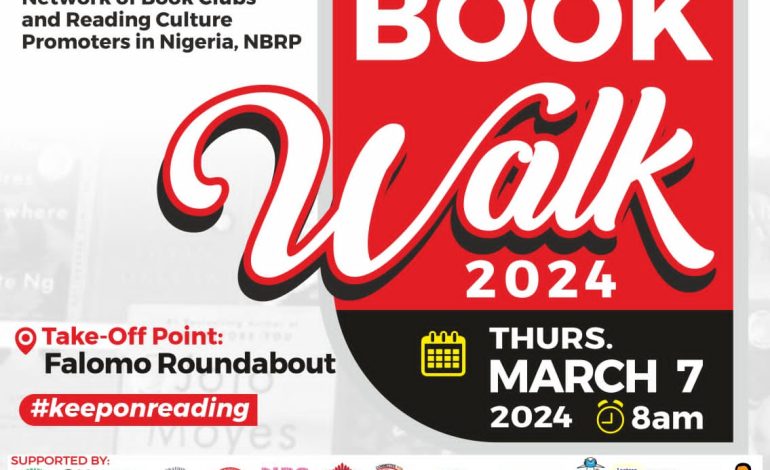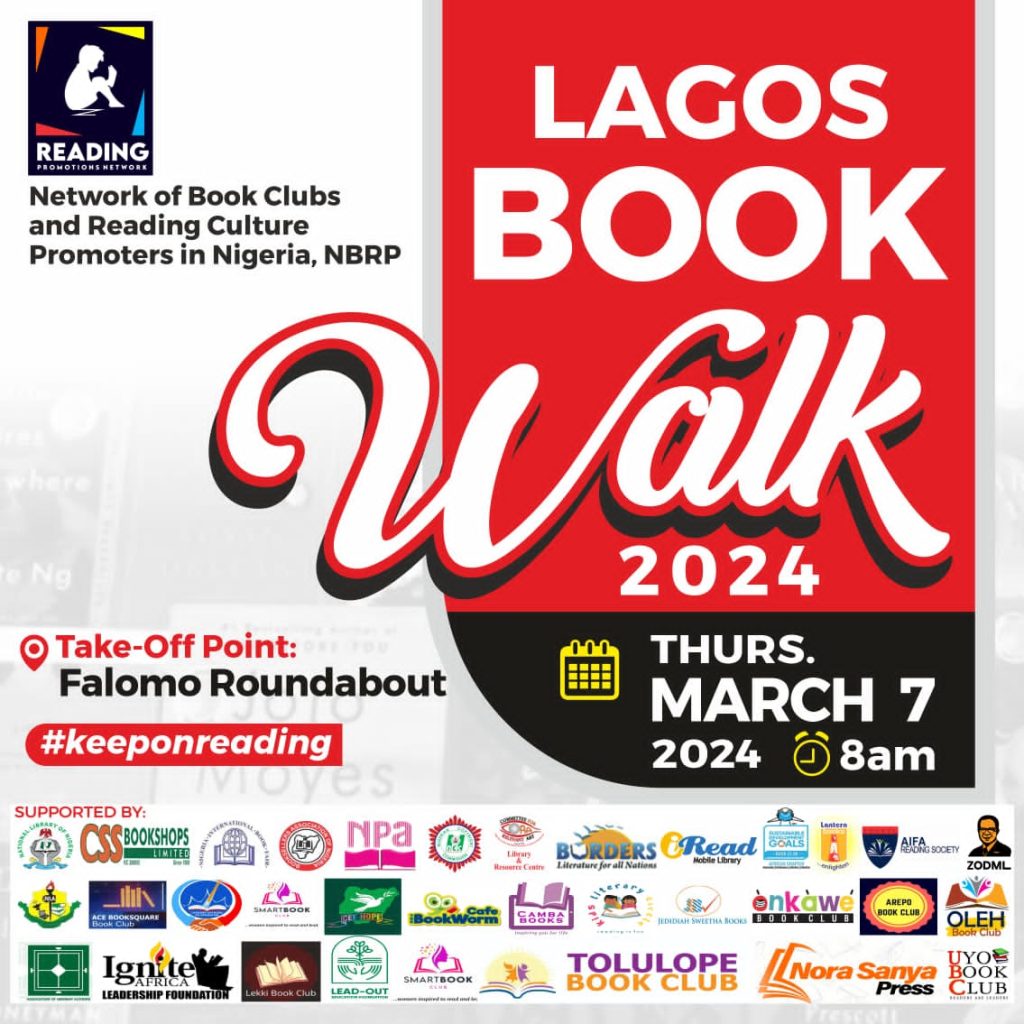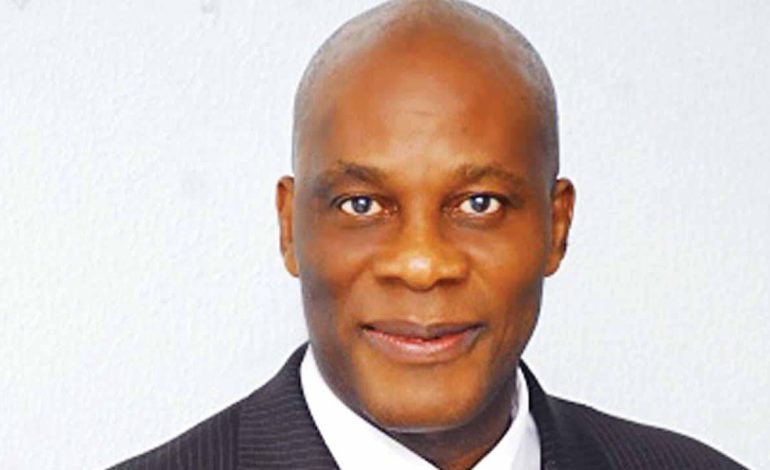Experts canvas making reading glamourous, community engagements for writers to attract youngsters, others

By Godwin Okondo
WHEN experts in the book value chain gathered recently in a virtual space to seek better ways of ‘Getting Back the Reading Groove’, it was no surprise that fresh ideas emerged that will help stimulate individuals and organisations working to deepen the culture of book reading among the populace. The event was the fourth anniversary of the establishment of Network of Bok Clubs and Reading Promoters in Nigeria (NBRP), a conglomerate of book clubs across the country. The virtual book session was moderated by journalist and writer Mr. Anote Ajeluorou. Prof. Nkechi Christopher, Dr. Kole Odutola, Dr. Emman Shehu and Dr. Nkem Osuigwe were the resource persons who addressed the anniversary theme. Mr. Jahman Anikulapo, Dr. Usman Akanbi, Prof. Mabel Evwierhoma were among others who contributed.
And one of the novel ways suggested was for reading to be made glamourous, so as to attract young people. In today’s world of TV and cinema glamour and the super stars they create and celebrate, which young people generally gravitate towards as their models, putting such glamourous spin to book reading, Vice President-elect of Literacy Promotion Association of Nigeria (LPAN – formerly Reading Association of Nigeria, Dr. Nkem Osuigwe, said would yield good results. The library expert also said meeting young people at the spaces where they inhabit and bringing books there could help endear them to books and reading. Culture communicator, Mr. Jahman Anikulapo also suggested localising book engagements where activities are community-based, with writers being celebrated in their own communities to validate such writers and what the literature they have written.
According to Osuigwe, “We need to find ways to glamourise reading. Why am I using that term – glamourise? In Nigeria, Africa, we have a youth bulge; there are more younger people than you can think of – from 15 – 28 years old. What is it that they do? How can we get them interested in reading? How can we make them part of what we’re talking about? It’s by going to their spaces, those places where they are! And trying to help them understand that reading can be fun, too; reading can be swag, as they say, so that it’s not an elitist thing – something for you people up there.
“When young people imbibe the idea that reading can be fun, that it can be glamourous to be a reader, that they can move around in the world because they can read, learn, then there will be changes. That’s the kind value that we may decide to create, helping these young people not only to read, but the idea that reading is not just for old people or people in school. And making them realise that they can become something because they are readers. Essentially, we need to glamourise reading and make it really cool. Book clubs are really important, but we have to meet these young people in their own spaces.”
Anikulapo, who submitted that “one of the best things that has happened to the reading project is the Network of Book Clubs and Reading Promoters in Nigeria,” also argued that “we have to put in more efforts, because book clubs helped in our younger days to focus and have direction.

“At CORA we have thought of having libraries everywhere, but we know that it will not be possible. So what we now do is to take books and their authors to their local communities and gather young people around them, so the author reads to them from his or her books. What we have now is that authors are not reading in the communities where they come from or live. Rather, what we have is authors being taken to bookshops that may be faraway from their own neighbourhoods or communities; it’s happening in Lagos, Abuja, Port Harcourt, etc. So community reading is an experiment we’ve brought in, to get authors to read in their own communities, to localise reading, because it also validates the author, validates the vocation of the writer, validates literature itself. And it’s making tremendous impact. We have to make sure that books become staple items.”
The Literacy Promotion Association of Nigeria is doing a lot of work in our neighbourhoods in promoting reading as an association as well as individuals, according to Prof. Nkechi Christopher, with a focus on training children how to read and training teachers also to help drive reading habits among children, so they take reading as a lifelong activity.
“We are very much involved in training teachers in workshops, but to speak more as an individual, I try to promote reading among my students in 200 level,” Christopher said. “And that has helped a lot in improving their skills, in discovering the world around them. I started it in 2012. We are doing more as individuals than as an association; we’re looking forward to spreading what we do, so more people know about it and get involved.”
Founder of Abuja Writers Forum, Dr. Emman Usman Shehu, said the forum is designed to help writer build capacity for writers to improve the quality of their books, so they are acceptable in the market.
“Abuja Writers Forum has been operating for about 15 years now, and we thought we saw a niche that we could capitalise on,” Shehu said. “Our concern basically is about capacity building for writers, ensuring that people who are passionate about writing acquire the necessary skills for writing, because we think that’s fundamental, especially with the state of our literature. We thought that if you don’t have quality materials – books – people will not be interested in reading; they will be put off. Our thinking is that you start with a concept, an idea, and after that idea is developed, it becomes a commodity. And if the commodity is not good enough, nobody is willing to look at it. We believe it’s critical that our foundational stage when concept is being developed should be good enough, so that when it becomes a commodity (book) it has the necessary quality to attract readers.
What the Network of Book Clubs and Reading Promoters in Nigeria is doing is not new, even if a new energy has been built into it. University of Florida don and culture expert, Dr. Kole Odutola, recounted what had gone before by way of efforts to make Nigerians befriendly books more decades ago. According to him, “In 1997, we had a multi-city event. e were in Kaduna and Kano. There were a series of other things that happened. I’m sure Prof. Mabel Evwierhoma is a living witness to what we did. I can never forget the way she brought things to life by making the students act out one of the books. Using the idea of a Brazilian thinker, who said it’s not the case of learning to read the word but learning to read the world. And so it wasn’t a surprise that through the Heinrich Boll Foundation, we were able to have a correlation between governance and citizenship engagement. It was not just a question of reading. In must be put in context that this was during the military era of Gen. Sani Abacha. We needed to get across to people somehow. Governance and who we are is tied up in so much how our minds are developed. And our minds are developed with the books we read.
“Most of the planning was done at the Arts desk of The Guardian. We all travelled to places together, consulted; we didn’t just start without understanding what was already on ground. There was the need to look at the various associations on ground. Readers Association of Nigeria (RAN) was there prior to that event. And it was based on a little survey that told us what was being done and what was left to be done. What also helped us was a programme officer at Ford Foundation, who helped us to create a passport. So instead of the new lingo now, which is ‘japa’, you actually left your house to the world of the book. And all the books you’ve read would be stamped on the passport, a physical passport then. And over the years you begin to count how many books you’ve read. It was an interesting idea that we started.”
EARLIER, President of NBRP, Mr. Richard Mammah said making society read is a critical, and it also provides fun and passion, adding, “I don’t know what else I will be doing if I’m not doing this. If you wake me up tomorrow, I will still do it. We promote reading culture, because reading culture is critical. I just want to say that the journey is long, although we’ve come some distance.
“And we have our flagship programme – the Guest Writers Session, which has been the most consistent literary event in the country, where we bring in published authors to read from their books. We feel that’s one way of giving publicity to books that are published.”
“I want to emphasise the imperative of working together, because the ecosystem that we work in can be quite difficult. So if you’re running alone and you meet bumps on the way, you can get tired. But if you look over your shoulder and you see CORA doing an event here, Abuja Writers Forum doing something over there, ANA doing an event here, Nigeria Book Fair Trust doing an event there, or that you can find some support and collaboration. For example, the Lagos Book Walk we’re doing next month, we can’t do it without the entire ecosystem binding together.
“So because the work is big and because the work is needed, we can’t relent. Look at the numbers of out-of-school children, those that are illiterate, the numbers that need help across our space, not just to catch literacy skills, but to continue to sustain it across their lifespan. Yesterday’s literacy skills were good but we can continue to upskill, upgrade to become functional literates. We must and should continue to do this together. Importantly, we have found help across the divide; yet there’s still much to be done. I’m convinced this session will help us in reconnecting, in strengthening and in building again the reading groove for a nation that needs to grow the book.”
The Chairman of Nigeria Book Fair Trust (NBFT), Mr. Dare Oluwatuyi, commended NBRP and its leader, Mammah, for the initiative to deepen reading, saying it has huge impact on their work as publishers and booksellers.
“I want to congratulate the president and the book club members for how far they have come and for their commitment, dedication and loyalty. It has been impressive so far. I want to appreciate the efforts of Prof. Felicia Etim, Dr. Nkem Osuigwe for the support we have been receiving from them. Not forgetting our own pillar Dr, Udeme Nana and Sen. Sampson Ekong and National Library CEO, Prof. Veronica Anunobi – they have all helped us to get to where we are today.
“Let me assure the Network of Book Clubs and Reading Promoters in Nigeria that, as one of your trustees, I can assure you that we will continue to support you in whatever way we can. Nigeria International Book Fair is feeling your impact and we appreciate all that you have been doing and that you have actually brought life to all we do. Mammah is at the heart of the planning committee of the book fair and he’s doing wonderfully well.
“The Booksellers Association of Nigeria is also feeling your impact in the country and in the industry, because if there are no buyers, there will be no booksellers. You’re doing so much. The efforts you’re making to ensure that people read give us more market. We don’t take that lightly; we recognise that you’re helping our industry and we want you to continue to do this. We will also continue to support you. Your Lagos Book Walk, we will join and participate. Happy fourth anniversary!”
The Executive Secretary of Nigeria Publishers Association (NPA), Mr. Emmanuel Abimbola, who stood in for the association’s president, Chief Cyril Anioke, also had warm words for the book club collective and pledged further support for all they do.
“As publishers, we’re a direct beneficiaries of the reading culture that NBRP is promoting. We publish books and if the readers are not reading, what then are we publishing? That means our books will not sell. So in essence, I’d like to give kudos to the BoT of NBRP, especially the president, Mammah for doing a great work. It’s now four years , and you’re doing very well. There are book clubs everywhere across Nigeria. It’s part of the efforts of NBRP at promoting the reading culture. So we will continue to support the network to ensure that we continue to promote the reading culture. Like I said, we, the publishers, are the director beneficiary of the work you do. If we don’t have a reading Nigeria, just as we used to have in those days, publishers will be out of business. But we benefit directly; your work impacts our work and on our business. Book publishing is like social service, but at the same time, we also do business. So we’re really grateful.
“If you’re not reading, you’re in the dark, like the problem of Nigeria. Across Nigeria right now, it’s total blackout. So anybody who is not reading is also in the dark and struggling to survive. I wish us a happy anniversary and a happy deliberation.”
ALSO, book enthusiasts who joined the virtual conversation on ‘Getting Back the Reading Groove’ were not left out, as they made useful contributions and submissions that could help the book and reading ecosystem.
Professor Mabel Evwierhoma of Theatre Arts department, University of Abuja, Abuja sued for the proper utilisation of radio and television, according to her, ”while we continue the focus on the internet.”
Adishetu Usman, who is a member of Minna Book Club, newly inaugurated on February 3, 2024, enumerated the club’s goals to include “promoting reading culture and awakening reading consciousness in Niger State. Part of our activities are reading a selected book every month, book reviews and Book Hunt, and other activities that will make reading appealing and attractive to the public.”
Dr. Excel Ukpohor hailed the session as “Great conversation and congratulations on our anniversary! We have a model that is working with over 120 youths coming to read and study everyday from Monday to Saturday at The Youth Resource Centre in Bonny Island, Rivers State. It’s a combination of most of the elements being discussed here. We have been in operations for 10 years now – www.yrcbonny.org. At the Youth Resource Centre, we have a Resource Library with over 5000 books, with the centre also supporting with book donations to school libraries within the community. In the past two years, we donated over 1,000 books. We also have 40 computers with e-books for young people. We have setup an ecosystem that is safe, conducive and welcoming to youths; it’s also augmented with youth-led activities and events to sustain their interest.”
“Very insightful contributions and thanks to all the speakers,” Nthabiseng, who joined from Pretoria, South Africa, said.
“I’m glad to be here. Happy anniversary to NBRP. I belong to the Literacy Promoters Association (LiPAN), formerly known as the Reading Association of Nigeria. On books and about books to the grassroots level, what I did in the last quarter and this January is to tell teachers brief stories about some books and that spurred them to read the books,” Graceful Ofodu informed.
Usman Akanbi
Capping the audience interventions during the conversation was the President of the Association of Nigerian Authors (ANA), Dr. Usman Akanbi, who expressed delighted ao being part of “this conversation centred on reviving book reading. I also wish to congratulate the Network of Book Clubs and Reading Promotion in Nigeria on its fourth anniversary. Over the past decade, ANA has utilized the Yusuf Ali annual grant to enhance literary awareness, particularly among younger audiences. As the new leader of ANA, my goal is not only to bolster this initiative but also to collaborate with other platforms dedicated to promoting reading. Prior to assuming the role of chief executive at ANA, I’ve been actively involved in my local chapter’s efforts to foster a reading culture. In 2007, I founded the Ilorin Writers Circle and contributed to establishing the Mustapha Akanbi Library and Resource Centre in Ilorin — a pioneering private/public library initiative dedicated to advancing reading culture in the city. We also have the ANA library located at the Mamman Vatsa Mpape, Abuja. Writers are welcome there.”



